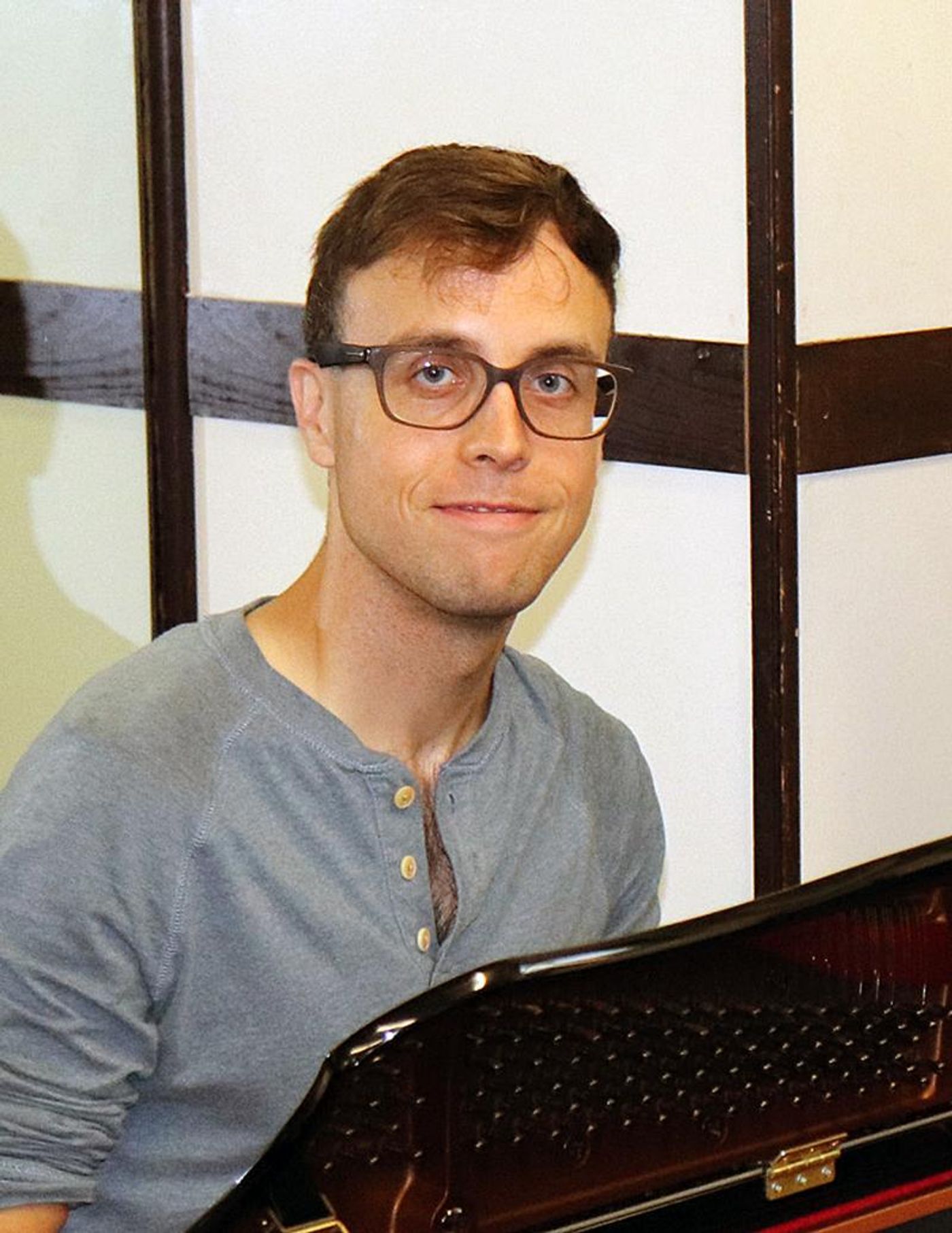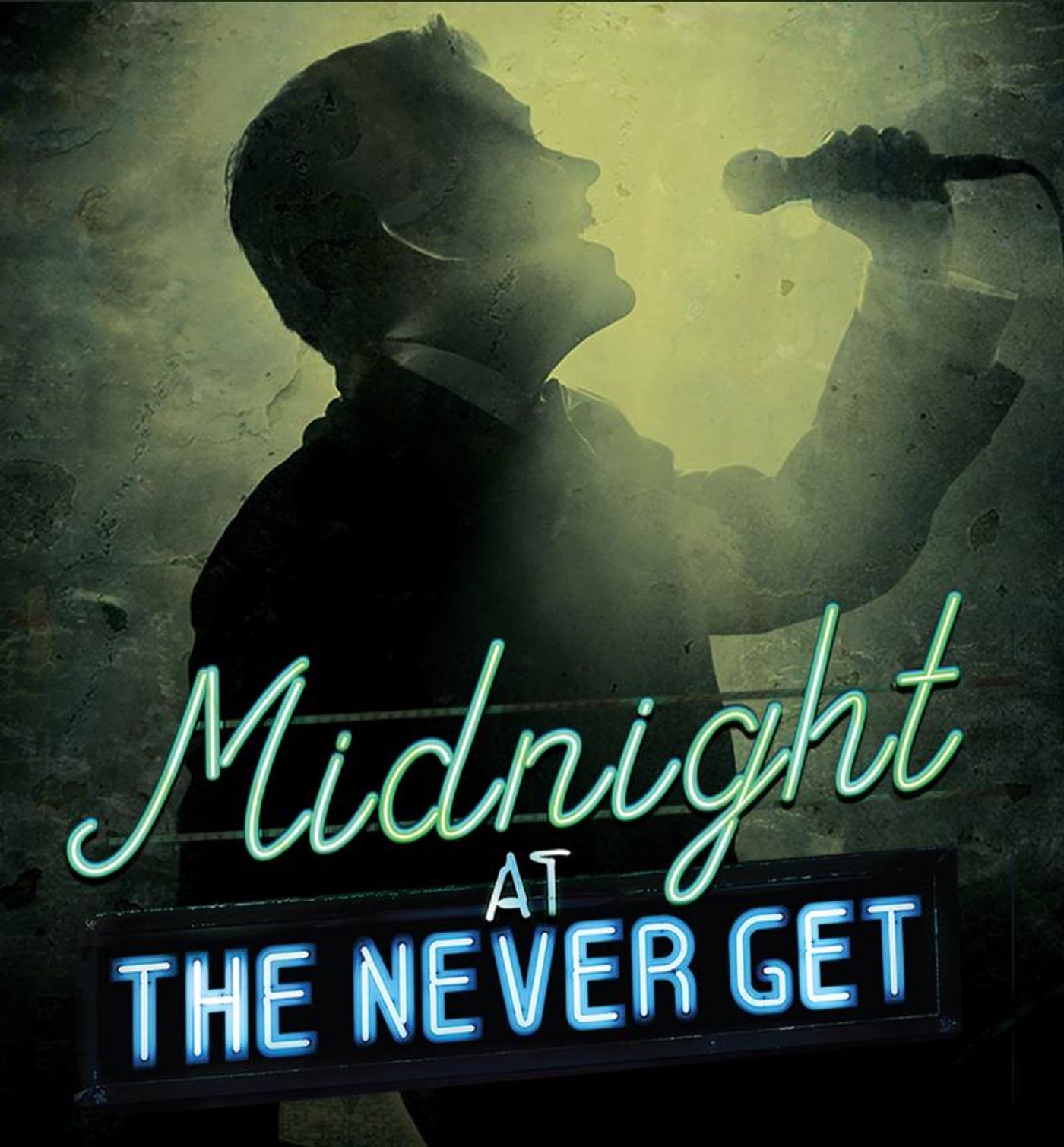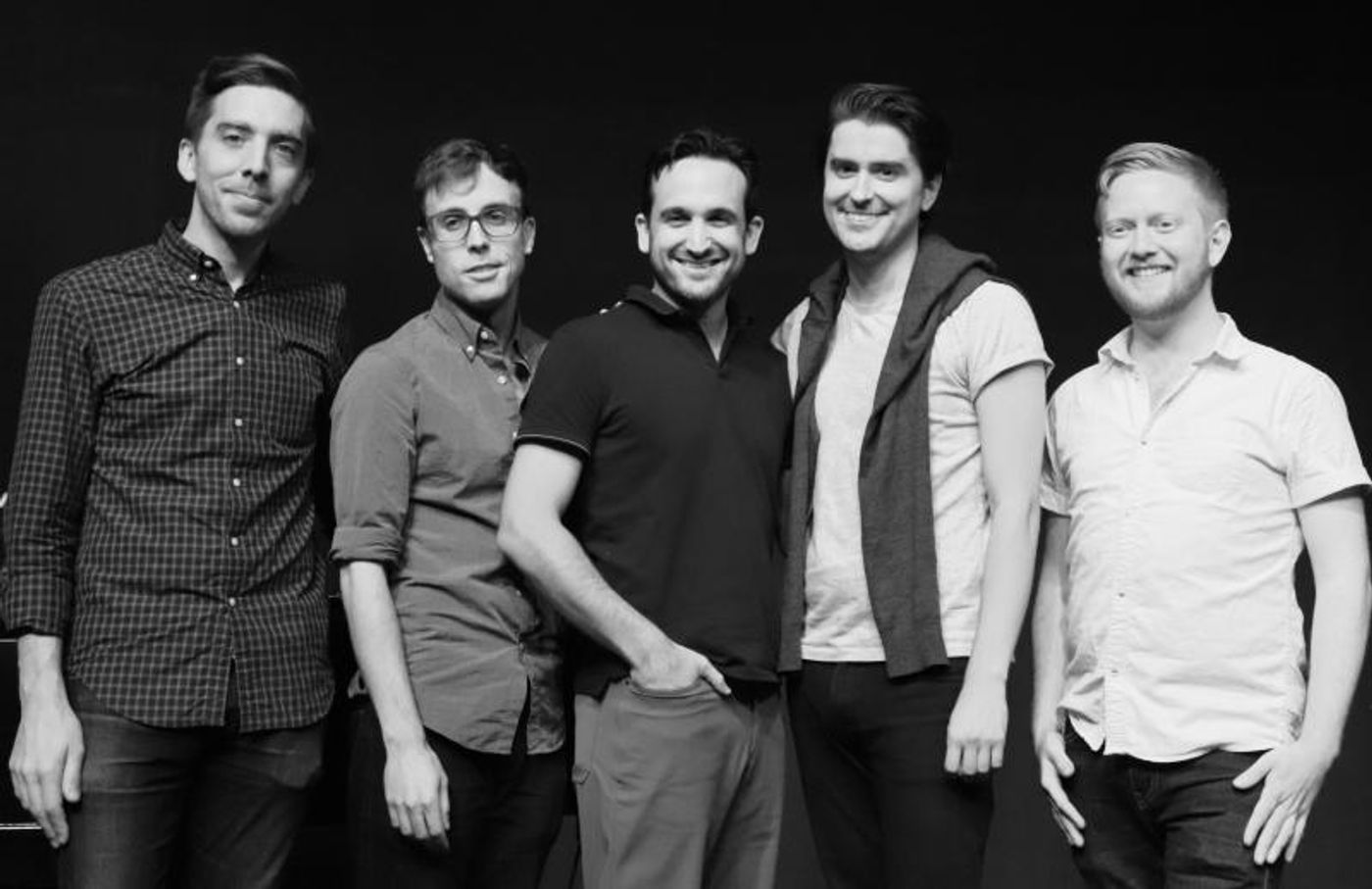Interview: Mark Sonnenblick Talks MIDNIGHT AT THE NEVER GET
 York NEO writer and 2018 Jonathan Larson Award winner Mark Sonnenblick is a fast emerging talent in the musical theatre industry. Midnight at the Never Get for which he wrote book, music, and lyrics kicks off its Off-Broadway premiere October 2, 2018.
York NEO writer and 2018 Jonathan Larson Award winner Mark Sonnenblick is a fast emerging talent in the musical theatre industry. Midnight at the Never Get for which he wrote book, music, and lyrics kicks off its Off-Broadway premiere October 2, 2018.
Midnight at The Never Get tells the story of singer Trevor Copeland and songwriter Arthur Brightman, who have the perfect New York romance. That's swell. In 1965, it's also against the law. So, in the back room of The Never Get, an illegal Greenwich Village gay bar, they put together a show called Midnight-a nightclub act where Trevor sings Arthur's love songs with their male pronouns intact. But as the lovers hurtle toward the end of the decade, they find themselves caught in a passion they can't control and a political revolution they don't understand.
Sonnenblick took a moment to speak with BroadwayWorld about the moving story of love, memory, and change.
Where did the initial concept for this show come from?
Sam Bolen, our lead actor, he and I knew each other from college. He was recording some demos for me and during that session he had this idea about doing a cabaret-style show where a singer sang the songs that his lover had written for him and over the course of the show you got to hear the song and hear the story behind it and behind the relationship. I thought it was great and the more we talked about it and worked on it, the more it evolved. We got a lot more context and story and everything fleshed out from there.
You've had multiple runs of this show from Don't Tell Mama to NYMF to Provincetown, has it undergone a lot of changes?
We've been lucky, in part because it's a two person show, to put it up several times and the changes have been similar to any musical in development. We switched out some songs, rewrote a lot of the stories and the script. But we've always kept the overall idea. Anybody who saw it in any incarnation will recognize the show, but we think we've made it significantly better than it was two years ago. The ending in particular has changed every time we've done the show. The hardest part of Midnight is figuring out how to bring the show home. We're really excited about this version we'll be doing at the York, we think it's the best the show has ever been.
What inspiration did you draw from to build the musical world of this show and the reminiscence of the Great American Songbook? What were the challenges there?
Growing up I played in my school jazz band where we played a lot of the classics and also within the singing group we sang a lot of songs from that era. It was present in my life from a musician standpoint. Most of what I listened to was not that music but it's something that, through repetition, got in my blood a little bit and I love it. That's part of the reason why when Sam brought the idea to me I was so excited because I do love writing in that style.
What can be hard when you have a show based around the American Songbook is to figure out why. Is the show a pastiche, is it making fun of that era? We have a lot of Songbook shows from Cole Porter and George Gershwin, they've written amazing shows. If I'm going to be doing that, the question is how can I figure out a good way into that? I collaborated with Sam who helped find ways to write in that style. This show is not a farce. It's a very specific kind of show that uses that music as a storytelling way, but it also it takes place in the 60's when that music is on its way out and seeing the characters struggle with that was a way to use the music in a less traditional way.
The big thing I added to my listening repertoire was cabaret music of the 50s and 60s. I wanted to get a flavor of that and what those songwriters sounded like just to know what the characters would be in dialogue with. There's influences of that in the music that comes later in the songwriter character's career. It was really exciting for me to get to know these people who are stars even now and talk to them and get their recommendations. I feel like I've learned a tremendous amount about that world and those writers and singers that I didn't know beforehand.
 So the choice of time period for this show had to do with the dichotomy between this old style music and new social changes?
So the choice of time period for this show had to do with the dichotomy between this old style music and new social changes?
Part of the attraction of the time period was yes the music was on its way out, but there's something about it that's really restrained and polished. There's a point in the show where the songwriter talks about how a song should be this perfectly structured gloss on the emotion someone is feeling and what's beautiful is the intensity of that feeling but they're singing these perfectly constructed songs. The songs are too perfect for what they're actually feeling but the gap between the rawness of the emotion and the craft of the song is what's beautiful when you hear those singers sing. That resonated with me with the idea of what it meant to be closeted. You have these intense emotions but you have to create this persona outside of that and these characters are struggling with their relationship and I think any person struggles with that but on top of that they're trying to figure out what their identities are in relation to the world around them, both in the straight world and the increasingly radical gay world. The idea of constructing your identity and filtering your emotions to create a unified front to the world was so tied into the music for me. The more I thought about that the more I thought this music makes sense to tell this story not only because it's a bit anachronistic and they're struggling because its on its way out but because the way this music is written really connects to what it means to filter your emotions and be gay and figure out what that looks like in the world. That was where I thought there's the political context for this music, it doesn't just sound like the 40's. That was the big reason why we set it in this sociopolitical world.
What does this Off-Broadway run mean for the show and for the team attached to it?
We're so excited to have the show in New York and have people come see it. It's the first chance for me as a writer, Max Friedman as a director, Sam as a performer, to work on this level and to share this story and our work with the city and with people that we really admire. That is by far what we are most excited about. Right now, I think it's going to be an absolutely fantastic production. We think people are really going to respond to it, and hopefully after this run is over there will be other chances to see it whether that's in New York or in other cities or whatever it looks like. We're focused on making this as great as possible so we have more options for the future.

Midnight at the Never Get runs October 2 through November 4, 2018. For tickets visit www.yorktheatre.org.
Photos courtesy of the York Theatre Company
Videos

